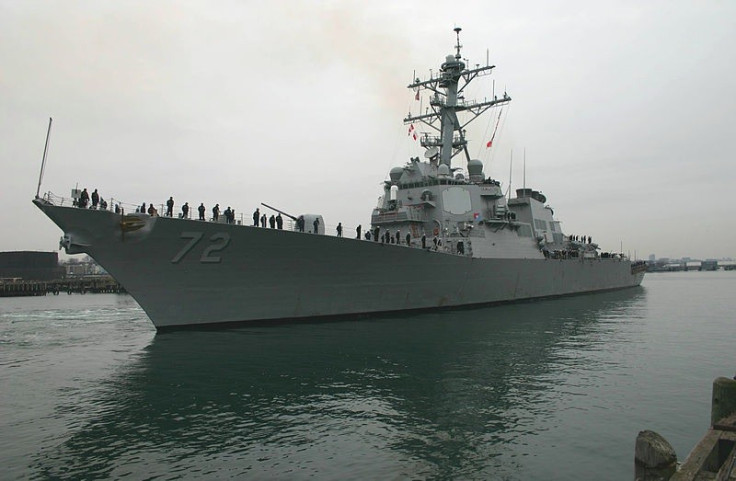US Bolsters Naval Presence as Syria Crisis Escalates

The US Navy has bolstered its presence in the eastern Mediterranean as President Obama met with national security advisers to discuss the "range of options" available to the US following Wednesday's chemical weapons attack in Damascus.
"The President has directed the intelligence community to gather facts and evidence so that we can determine what occurred in Syria. Once we ascertain the facts, the President will make an informed decision about how to respond," a White House official told Reuters.
On Friday, US defence secretary Chuck Hagel said that he had been asked to draw up a list of military options for the president to consider.
"The defence department has responsibility to provide the president with options for all contingencies," he told reporters.
"That requires positioning our forces, positioning our assets, to be able to carry out different options - whatever options the president might choose."
Earlier, US defence officials said that navy commanders had decided to keep destroyer the USS Mahan in the area, even though it had been due to dock in Naples, Italy, and end its deployment. The ship carries Tomahawk missiles, which would be likely to be amongst the first weapons used in a US strike on Syria, and bolsters the navy's presence to four warships in the Mediterranean.
Obama's aides are currently examining whether the airstrikes president Bill Clinton launched in Kosovo in 1999 could be used as a legal precedent for military action without a UN mandate in Syria, reports the New York Times.
In a parallel with the Syria crisis, The US believed that Serbian ally Russia, now a key Syrian government ally, would have used its UN Security Council veto to block military action. The US justified strikes launched with Nato allies as necessary to protect ethnic Albanians from attack by Serbian troops.
In an interview on Friday, President Barack Obama described the attacks on a rebel held area in eastern Damascus that opposition activists claim killed 1,400 as "a big event of grave concern".
In the interview, President Obama struck a cautious note: "Sometimes what we've seen is that folks will call for immediate action, jumping into stuff, that does not turn out well, gets us mired in very difficult situations, can result in us being drawn into very expensive, difficult, costly interventions that actually breed more resentment in the region."
However, the government of Syrian president Bashar al-Assad has denied responsibility for the attacks, and Syrian state TV today reported that soldiers found traces of chemical agents in tunnels retaken from rebels and were overcome by breathing difficulties.
The Russian government has blamed rebels for launching the chemical attack and attempting to implicate Assad's forces, in an attempt to provoke Western countries to join the war.
The UN's disarmament chief, Angela Kane, has arrived in Damascus to push for access to the site of the attacks to, with Moscow supporting calls from Europe, the Middle East and the US for the Syrian government to allow UN inspectors access.
So far, the Syrian government has not responded to the requests.
Iranian president Hassan Rouhani today condemned the chemical weapons strike.
"The situation prevailing in Syria today and the death of a certain number of innocent people caused by chemical weapons is very distressing," he said.
The UK and French governments have both stated that they believe that Assad's government is responsible for the attacks.
© Copyright IBTimes 2025. All rights reserved.






















